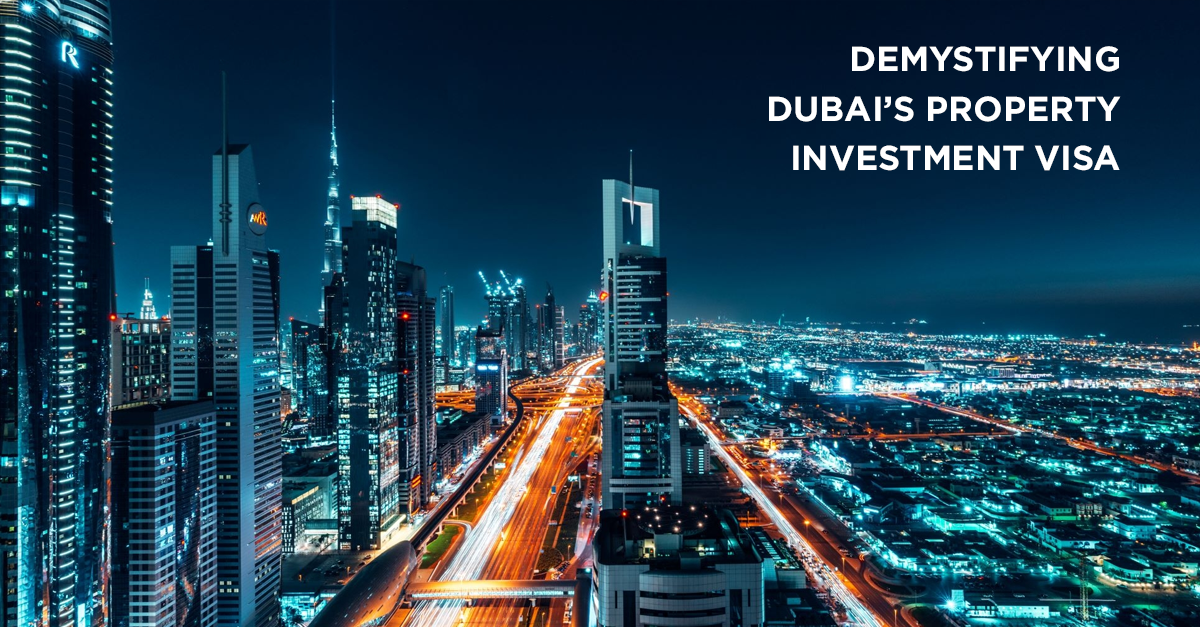Demystifying Dubai’s property investment visa
A property investment visa, or immigrant investment program, is a residence or citizenship opportunity offered to investors by the issuing country, which is dependent upon them making real estate investments. These programs can be traced back to the 1980s, when few Caribbean countries formulated cash-for-passport programs, in a bid to attract foreign investments. This move opened a conduit for high-net-worth individuals (HNWI) to channel their investments, in return for perks that are unattainable or absent in countries of their origin. Although the genesis of such programs has tax evasion undertones, the practice snowballed into an economic routine over time, earning the mainstream moniker of an ‘economic citizenship program’.
At the moment, over 25% of all countries have such programs on offer, although no two programs are the same in structure. Whether it’s the EB-5 program in the US, or the Tier 1 investment visa in the UK, each program necessitates its own set of requirements and documentation. Dubai, for its part, has a long-standing property investment visa program, designed to be mutually beneficial to both investors and the regional economy. Despite this, the program remained shrouded in obscurity until its recent revamp, as part of Sheikh Mohammed’s multidisciplinary reforms. Given historical precedents, recent enhancements, and the promise it holds, this is a good moment in time to assess the program.
The preexisting program
Let’s first consider the arrangement, as it existed prior to the recent changes. Upon purchasing a freehold property valued at AED 1 million or above, an investor used to be eligible for 2-year visa. The visa eligibility was then subject to registration and ratification by the Dubai Land Department (DLD). The program had provisions in place for joint ownership with spouses, and renewal after two years. Provided the sale deed, photos, passport photocopies, clearance certificates from the police and DLD, NOC from mortgage lenders, health insurance proof and marriage certificate – in case of joint ownership – were furnished, the visa could be issued within a day’s time. The 2-year visa span was later extended to three years, with a renewal option.
The 5-year program
The recently introduced 5-year visa program has an investment prerequisite to the tune of AED 5 million or above, besides an application fee of AED 2,600. As long as investors retain the investment, they can avail the renewal option and also sponsor visas for dependent family members (1). Although the 5-year program is restricted to a resident status only, it permits hiring of domestic help and drivers, in accordance with the UAE’s Ministry of Human Resources & Emiratisation.
Mortgaged, off-plan or under-construction properties do not qualify for visa issuance under the new program. However, it allows investors to enter and exit the country whenever they choose during the visa term, without any minimum duration of stay. In such cases, the DLD also retains the option of terminating the visa, if the investor sells the property without replacing it with a substitute. The value of such a substitute property need not match the current market value of the sold property. However, it does need to satisfy the AED 5 million valuation. This is an attractive and fair arrangement for investors, allowing them to leverage market fluctuations to their benefit.
An extended 10-year visa program is also on offer for multiple investments upwards of AED 10 million, provided each property value does not exceed 40% of total investment. The 5-year retirement visa, available for investors aged 55 or above, can be availed with a property investment valued at a minimum AED 2 million.
A well-timed initiative
Unlike the previously offered 3-year visa, these longer-term programs are expected to be far more attractive to potential investors. In a time of growing inflexibility in visa laws across the globe, Dubai is currently one of the few developed and culturally vibrant cities to offer long-term visas for property investments. With the visas designed to cater to international investors with varying financial prowess, the resulting market impetus will benefit both the affordable as well as premium property segments.
According to the IMF, the vast majority of investors seeking investment visas, around the world, are said to be Chinese. In a Canadian program that has since been cancelled, 75% of all applicants were Chinese nationals, and the same trend can be witnessed in many other Pacific countries. Dubai’s new programs coincide with reports of a 6.5% increase in disposable income in China in 2018 (2). Many other countries that traditionally harbour an appetite for Dubai real estate are also experiencing a rise in disposable income, making the new visa regulations particularly timely.
Implications for developers and the market at large
Industry insiders expect the new visa programs to influence the plans of the Dubai developer community, to some extent. For instance, developers may favour projects befitting an AED 5 million price tag, in order to leverage marketing opportunities arising from the new visa programs. According to Knight Frank, around 5,500 properties valued at AED 5 million are currently listed on property portals (3). However, less than 1,000 properties meeting this criterion have been registered in the past year or so. This disparity could result in a push to expand offerings in this segment of the market, following the introduction of the new visa programs.
While activities around the approaching Expo 2020 are already delivering a strong stimulus in the short term, the event will also be a great showcase of Dubai, as a city of the future that offers the finest in lifestyle and livability options. Unlike the restricted potential of the previous regulations, Dubai’s new, more investor-friendly regime of property investment visas is perfectly positioned to create a long-term influx of capital and market stimulus.




